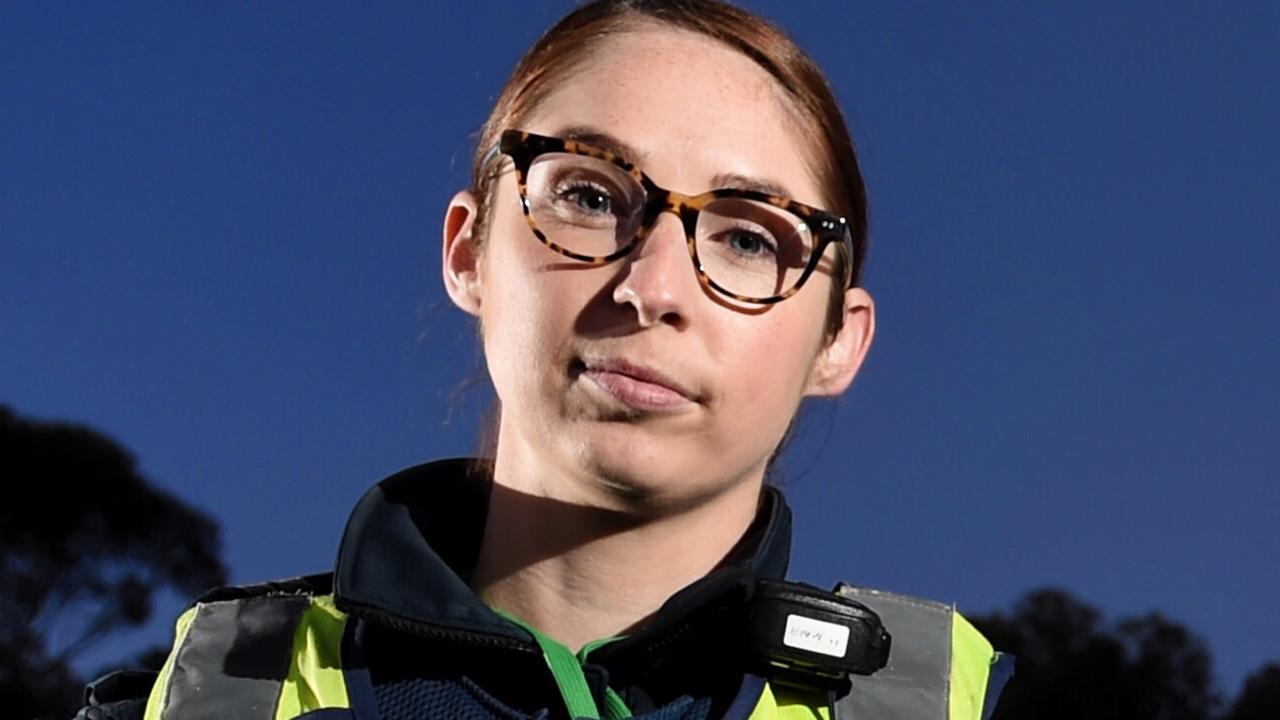How Hitler’s man in Australia could have changed the course of politics
AN intelligent German doctor in the Barossa Valley seduced by Hitler’s ideology, this is how Australia’s “number one Nazi” came under lock and key in Victoria during WWII.

VIC News
Don't miss out on the headlines from VIC News. Followed categories will be added to My News.
- SUMMER: The best rooftop bars in Melbourne
- EAT: Victoria’s best 100 restaurants
- MELBOURNE: Our best places to camp this summer
A GROUP of men casually stand around a swastika banner wrapped around the trunk of a eucalypt, as the world stood at the doorstep of Nazi peril.
In the late 1930s a passionate group of Germans and German descendants, mostly in South Australia, threw themselves behind Adolf Hitler’s ideology and threatened to spread nationalist socialism in Australia.
Originating with a core group of men in the Barossa Valley, meetings were held in homes and halls pledging allegiance to Hitler and plotting ways to mesh the ideology with the Australian way of life.
Chief among Nazi sympathisers was Dr Johannes Heinrich Becker, a decorated WWI veteran and former ship’s doctor who migrated to a new life in Australia in 1927.
Mixing with a German community in the Barossa Valley and surrounds, which had started in the late 19th Century with Lutheran migrants, Becker found fertile ground for the new politics sweeping Germany.


Impressive political rallies showcased Nazi strength and prestige to the world and reignited patriotism in Germans who had migrated to Australia.
Becker in particular had reason to hold a grudge against the Australian and British governments, who would not recognise his medical qualifications and had previously rejected his application for naturalisation because he had not lived in Australia for long enough.
Becker continued to practice as a doctor despite the rules — a path that brought him to constant conflict with British and local regulators.
Australia, along with much of the western world, was also in the grip of economic depression.
Just as the struggling population of Germany had fallen behind an ideology that targeted a perceived global Jewish elite, Australians, and particularly German Australians, were vulnerable to ideas that answered their problems.
Becker became increasingly involved in the Nazi cause, visiting his homeland and joining the Nazi Party in the early 30s, hosting gatherings in South Australia and spreading Nazi ideology.

In 1933 he was appointed the Nazi’s state trustee for Australia, leading Australian authorities to later dub him Australia’s “number one Nazi”.
It was rumoured that in 1936 he was even approached by the ALP to run for parliament in South Australia, and eventually his son Heimi Becker became a South Australian MP.
But Becker’s approach in Australia was at odds with the German elite. His use of propaganda, and building relationships with migrants and sympathetic Australians, let him to argue with the German consul general.
In 1936, before the war even started, he was removed by the Nazi Party as their chief in Australia.
Ultimately it was Becker who was left feeling persecuted and harassed.
His wife Mona and two young children felt the constant strain of surveilling authorities.
The Australian Government accused him of being a spy and, when the war broke out in 1939 he was detained by the Government as a Nazi sympathiser.

Becker was uprooted from the Barossa and interned in Tatura in central Victoria, later being moved back to South Australia.
When he was finally released at the end of the war after seven years of internment, he was paroled, but was arrested again after trying to stow away on a ship headed to Panama.
The Australian Government eventually deported him to Germany in 1947, in what his family called a sham process.
The Australian Supreme Court later moved to nullify his marriage and he was never allowed to re-enter the country, despite his family remaining in South Australia.
In 2007 politician Heimi Becker said of his father, who died in West Germany in 1961, “They called him a spy, but what did he ever do when he was in Australia to warrant this?”
“All he did was relay some harmless information to the early settlers in the Barossa Valley about what was happening in Germany.”
Around the time a book about the Barossa Nazis, The Hitler Club, was published, Mr Becker recalled the toll the ordeal took on his family.
“I remember my mother being in tears some days because she was being harassed by the security police. She was at breaking point,” he said.
Dr Becker, having been exonerated by a European post-war tribunal, lived out his days in Germany.


